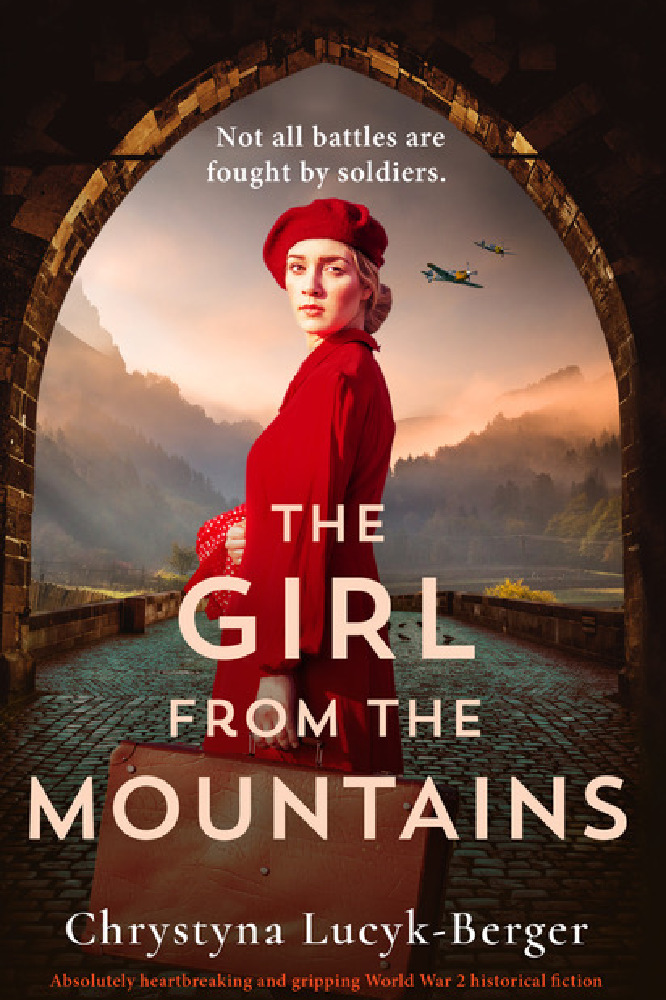1. There is such a thing as too much research.
My first novel attempt was all based on actual events in WW2 Ukraine. I info-dumped so much that the “novel” was about as much of a novel as a docu-drama is a blockbuster.

The Girl From The Mountains
The research alone took me 20 years. I researched WW2 history from Europe, to Africa to the Pacific. Regardless, I proved to myself that I could write a book. It is a very compact source that I have since used for two other books!
2. Outline a series in detail before you write
True story: A couple received free windows from friends. They took those windows to an architect and said, “Please plan a house around these windows.”
And that’s what it was like when I started writing a series based on the building of the Reschen Lake reservoir in northern Italy. I had an idea that the books would start from 1920 and go to about 1970. But I made no outline. At one point, I deleted 30K words because it was going in all the wrong directions. It took me 8 years to write because, yes, too much research (slow learner). But by Book 3, I learned to outline. I wrote faster, more accurately, and there were still plenty of surprises!
3. What I might find interesting doesn’t always mean the readers will
I’m fascinated by psychology and what makes people do the things they do. I wanted to explore how it was that one of the antagonists in the Reschen Valley series becomes a madman and stabs my protagonist. I wrote the novella in six weeks (outlines!), had it professionally edited, and published it as the prequel. Except that a good portion of my readers found it hard to digest. My antagonist is unlikable, and I realized that my readership did not share the same morbid fascination as me. Yes, it was still worth it.
4. You have no idea what’s marketable until you put it out there
A short story of mine won an international competition and I decided to use that as a kind of reader magnet for subscribers. Except, I felt like it was kind of cheap. I decided to put together a collection.
Guess where I went for material. That first book I’d written provided me with the nuggets I needed. I reworked 5 more stories from top to bottom, got my designer to make an incredible cover, and asked my author colleagues how they might price the collection.
The first answers I got was, “Short stories don’t sell.” But I put it up at a higher end price and watched what would happen. It is my best-selling book. I never changed the price, and sell copies every day in all its formats.
5. Big epics require compromising timelines
When I started writing the Reschen Valley series, I was trying so hard to stick to the timelines. The trouble was, by the time I reached Book 3, these historical accuracies I was so keen to observe were really messing with my pace and plotting. When I studied how others do it, though, I learned to stop sweating it. Instead, I reach for the fictional license and write an author’s note to correct the most obvious inaccuracies.
6. Recognize a story and freaking run with it… and if you can, visit the setting.
The Girl from the Mountains, out on February 3rd, is hands down the book where I could say, “I have arrived.” It’s inspired by an anecdote a friend shared with me, that was so shocking, my first question was, “Who in the world would have the guts to do something like that?” I was back to where I’d been with that series’ novella, but I’d learned my lesson. The story my friend shared with me was about a horrid act committed on a newborn. I wanted to know what would drive a person to commit such an act. I had a fictional name right away. Magdalena Novák. I knew that had to be it. So, I did a Google search of the name Magda, and up pops a photo of a young woman with a massive birthmark on her face. I immediately knew everything about my character and why she would be driven to seek revenge. A short story poured out of me, and when I was finished, I knew I could turn it into a novel, so I outlined it. Bookouture / Hachette UK picked it up within two weeks after submission.
7. Apply all that you know and keep writing.
I have taken all those lessons and now written the first draft of another epic, taking place in Ukraine in WW2. Because what I found was that those stories I’d tried to tell in my first attempt deserved to be told correctly. This time, it took me 6 months from concept to first draft. Readers will be able to get their hands on it this summer.

